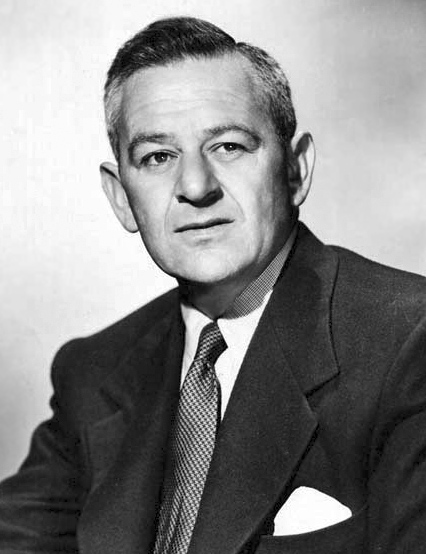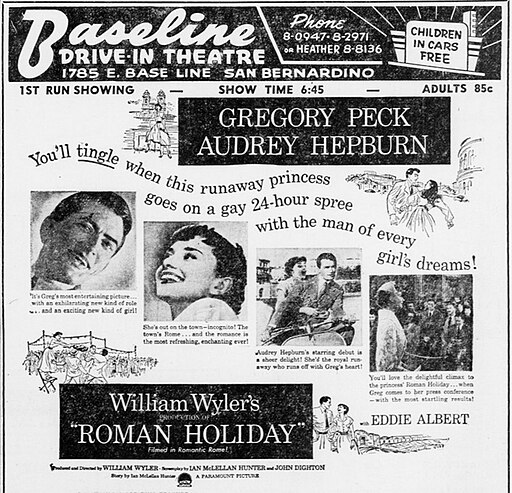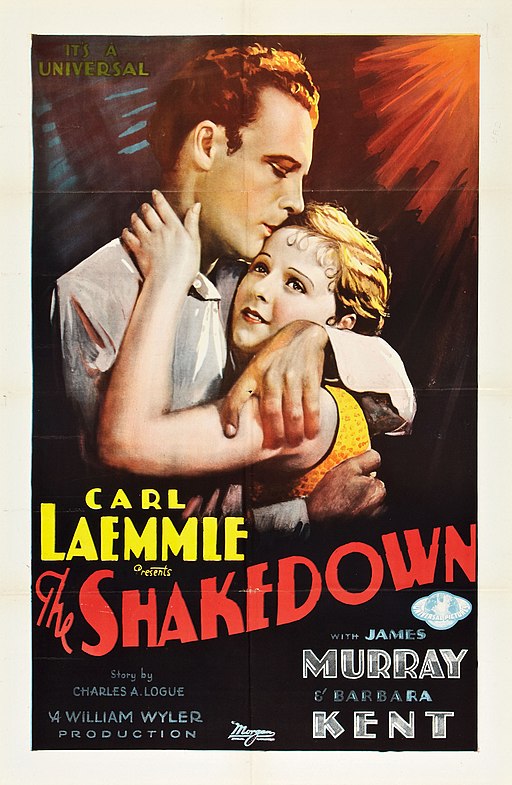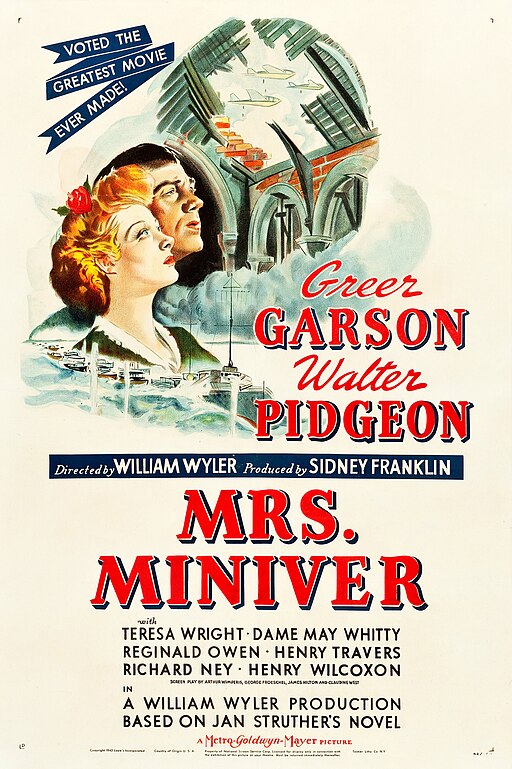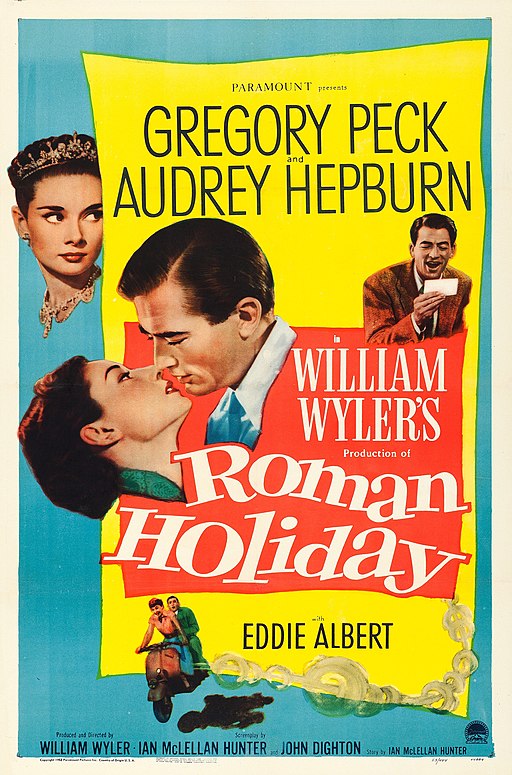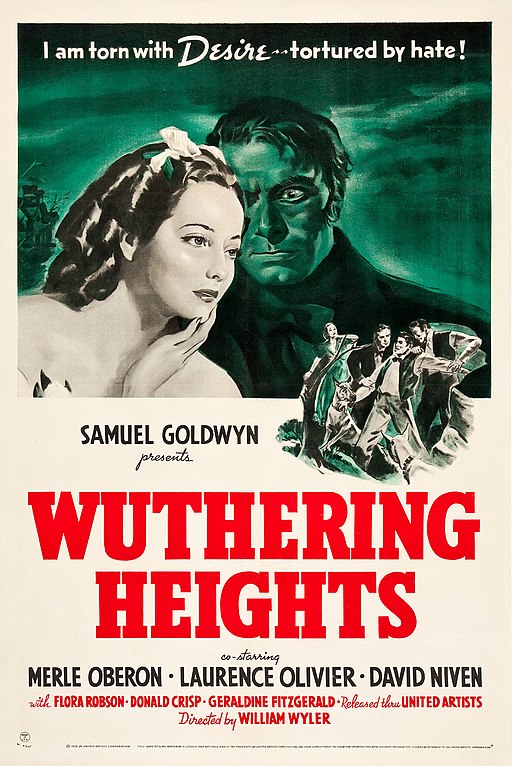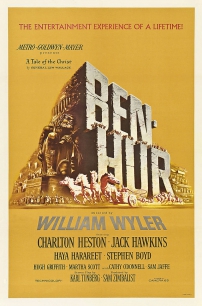William Wyler
back| Full Name | William Wyler |
| Born | July 1, 1902 |
| Birthplace | Mulhouse, Alsace, Germany (now in France) |
| Died | July 27, 1981 |
| Buried | Forest Lawn Memorial Park, Glendale, California, United States |
| Married to | First, he married Margaret Sullavan in 1934, but they divorced shortly thereafter. His second marriage was to Margaret Tallichet in 1938, with whom he remained married until his death |
| Children | Catherine, Judith, Melanie, David, and William Wyler Jr. |
| Notable films | Ben Hur (1959) - The Best Years of Our Lives (1946) - Roman Holiday (1953) - Wuthering Heights (1939) - Funny Girl (1968) |
William Wyler
The Perfectionist
William Wyler's directorial style was characterized by his meticulous attention to detail, insistence on multiple takes, and ability to extract deep emotional performances from his actors.
He holds the record for the most nominations for Best Director at the Academy Awards and is remembered as one of the most respected filmmakers in Hollywood history.
Related
William Wyler (1902 – 1981)
Biography and Overview of her Career
William Wyler was born on July 1, 1902, in Mulhouse, Alsace, then part of the German Empire, now in France. His family was of Jewish descent, and he grew up in a comfortable middle-class environment. The world of cinema fascinated Wyler from a young age, but it wasn't until he moved to Paris and later to America that his career in film began.
Move to America and Early Career
Wyler emigrated to the United States in 1920, joining his cousin Carl Laemmle, who was a major figure in Universal Studios. Starting as an errand boy, Wyler quickly rose through the ranks. He showed a natural aptitude for filmmaking, initially working as a script clerk and then moving on to become an assistant director.
Rise to Prominence
Wyler's directorial debut came in the 1920s with silent films. However, it was during the 1930s and 1940s that his career truly flourished. He became known for his perfectionism, often demanding numerous retakes to capture the perfect shot. This meticulous attention to detail was evident in his films, which were marked by deep characterizations, complex narratives, and a distinctive visual style.
Notable Films and Achievements
Throughout his career, Wyler directed an array of successful and critically acclaimed films. "Wuthering Heights" (1939), "The Letter" (1940), "The Little Foxes" (1941), and "Mrs. Miniver" (1942) are just a few examples. His 1959 epic "Ben-Hur" won 11 Academy Awards, a record at the time. His films received a total of 120 Oscar nominations, a testament to his influence and success.
World War II and Its Impact
Wyler served in the U.S. Army Air Forces during World War II, where he directed the documentary "The Memphis Belle: A Story of a Flying Fortress" (1944). His wartime experiences profoundly influenced him, deepening his understanding of human struggle and suffering, themes that he would explore in later works like "The Best Years of Our Lives" (1946).
Personal Life
In his personal life, Wyler was known for his charm and his complex relationships with actors. He married actress Margaret Sullavan briefly in 1934, but their union was short-lived. He found lasting companionship with his second wife, Margaret Tallichet, with whom he had five children. His personal life, though less tumultuous than others in Hollywood, was still marked by the pressures and demands of his career.
Legacy
Wyler's legacy is one of artistic excellence and innovation. He was not just a filmmaker; he was a storyteller who brought out the best in actors and crew alike. His influence extends beyond the films he made; it lies in the standard of perfection and the pursuit of artistic integrity he set in the film industry. William Wyler passed away on July 27, 1981, but he left behind a body of work that continues to inspire filmmakers and captivate audiences worldwide.
Interview with William Wyler:
Analysis of the Directing Style of William Wyler:
William Wyler's directing style is often celebrated for its sophistication, versatility, and a deep sense of humanity. His approach to filmmaking was marked by several distinctive characteristics:
Perfectionism and Attention to Detail:
Wyler was famous for his perfectionism, often shooting dozens of takes until every nuance was as he desired. This meticulous attention to detail was evident in the precise framing, composition, and staging of his scenes. His insistence on getting the perfect shot led to a level of visual and emotional depth that was rare in films of his era.
Mastery of Cinematic Techniques:
Wyler's use of deep focus and wide shots was revolutionary, allowing multiple layers of action and interaction within a single frame. This technique not only showcased his technical prowess but also added a psychological depth to his storytelling, as characters and their environments were intricately interwoven.
Exploration of Complex Characters and Themes:
Wyler had a knack for exploring the complexities of human nature. His films often delved into themes of morality, societal norms, and personal conflicts. He had the ability to elicit profound performances from actors, often leading them to deliver some of their best work under his direction.
Versatility in Genre:
Wyler did not confine himself to any single genre. He successfully directed a wide range of genres, from Westerns and romantic comedies to dramas and epic historical films. This versatility demonstrated his ability to adapt his style to the demands of different storylines and settings.
Collaborative Approach with Actors:
Despite his reputation for demanding numerous takes, Wyler was deeply collaborative with his actors. He often worked closely with them to develop their characters, allowing them to contribute their own ideas and interpretations. This collaboration resulted in many actors giving acclaimed performances and earning numerous awards.
Emotional Resonance and Realism:
Wyler's films are known for their emotional depth. He had a unique talent for capturing the subtleties of human emotion, creating films that resonated strongly with audiences. His focus on realism, both in performance and setting, lent his films a credibility that helped engage viewers on a more profound level.
Legacy as a Storyteller:
Above all, Wyler was a master storyteller. His films, characterized by their narrative strength and clarity, have stood the test of time. He knew how to weave a tale in a way that was both entertaining and thought-provoking, leaving a lasting impact on the audience.
Awards and Recognition:
William Wyler, one of the most celebrated directors in the history of cinema, received numerous awards and nominations throughout his career. His work was recognized for its outstanding quality in various international and national award ceremonies. Here's an overview of his most notable awards and nominations:
Academy Awards (Oscars)
- Best Director for "Dodsworth" (1936)
- Best Director for "Wuthering Heights" (1939)
- Best Director for "The Letter" (1940)
- Best Director for "The Little Foxes" (1941)
- Best Director for "The Best Years of Our Lives" (1946) - Won
- Best Director for "The Heiress" (1949)
- Best Director for "Detective Story" (1951)
- Best Director for "Roman Holiday" (1953)
- Best Director for "Friendly Persuasion" (1956)
- Best Director for "The Big Country" (1958)
- Best Director for "Ben-Hur" (1959) - Won
- Best Picture for "The Collector" (1965) - As producer
In addition to these, Wyler also received the Irving G. Thalberg Memorial Award at the Oscars in 1966, which is given to "creative producers, whose bodies of work reflect a consistently high quality of motion picture production."
Directors Guild of America (DGA)
- Outstanding Directorial Achievement in Motion Pictures for "Ben-Hur" (1960) - Won
- Lifetime Achievement Award (1976) - Won
BAFTA Awards
- Best Film from any Source for "Ben-Hur" (1960) - Won
- Wyler also received several BAFTA nominations for Best Film and Best Foreign Actor for films he directed.
Golden Globe Awards
- Best Director for "The Best Years of Our Lives" (1947) - Won
- Best Director for "Ben-Hur" (1960) - Won
- Cecil B. DeMille Award for lifetime achievement (1966) - Won
Cannes Film Festival
- International Prize for "The Best Years of Our Lives" (1947) - Won
- Special Mention for his body of work (1957) - Won
Venice Film Festival
- Best Foreign Film for "Detective Story" (1952) - Won
Berlin International Film Festival
- Honorary Golden Bear for lifetime achievement (1973) - Won
Quotes from William Wyler:
On Simplicity and Authenticity:
- "I feel that a picture that stays with you is made up of a hundred or more hidden things. They're things that the audience is not conscious of, but that accumulate."
- "The best director is the one you don't see."
On Storytelling and Film Direction:
- "A good script and a good brief from the director is enough to let me know what is expected of me."
Regarding His Filmmaking Approach:
- "I'm here to make good pictures. If I don't have the story and the cast, the color won't help."
On Perfectionism:
- "It is a mistake to believe that merely by keeping the camera running, true movie realism is achieved."
On Artistic Integrity:
- "I just make pictures I like. If I like them, there are bound to be other people with taste similar to mine."
On Directing Actors:
- "Directing a movie is a very overrated job, we all know it. You just have to say 'yes' and 'no.' What else do you do? Nothing. 'Maestro, should this be red?' Yes. 'Green?' No. 'More extras?' Yes. 'More lipstick?' No. Yes. No. Yes. No. That's directing."
On His Career:
- "I've always regarded myself as just a motion picture director. As far as I am concerned, directing is not a profession but an art, and I am an artist. This is my art, and I am satisfied with it."
Reflecting on Success and Failure:
- "I can't sleep at night if I don't feel I've made a picture that will give people a little bit of thought, a little bit of enjoyment."
On Film Criticism:
- "If you want to send a message, try Western Union."
Overview of all Movies directed by William Wyler:
1920s
- "The Crook Buster" (1925): An early silent film featuring a cowboy hero.
- "Ridin' for Love" (1926): A romantic western.
- "The Fire Barrier" (1926): A drama centered around forest rangers.
- "The Pinnacle Rider" (1926): Another silent-era western.
- "Don't Shoot" (1926): A comedy western.
- "Martin of the Mounted" (1926): A Canadian Mountie adventure.
- "Lazy Lightning" (1926): A western drama.
- "The Stolen Ranch" (1926): A film about a veteran returning to his home.
- "Daze of the West" (1926): A comedy western.
- "The Gunless Bad Man" (1926): Focuses on a peaceful cowboy.
- "The Square Shooter" (1927): A cowboy's story of redemption.
- "Hard Fists" (1927): A western drama.
- "The Border Cavalier" (1927): A tale of the American frontier.
- "Desert Dust" (1927): Set in the desert landscape.
- "Thunder Riders" (1927): A western with action and adventure.
- "The Phantom Outlaw" (1927): A story of a mysterious outlaw.
- "Galloping Justice" (1927): A tale of a lawman in the west.
- "Blazing Days" (1927): A dramatic western.
- "The Horse Trader" (1927): Focuses on horse trading in the west.
- "The Home Trail" (1927): A cowboy's journey home.
- "Gun Justice" (1927): A story of justice in the wild west.
- "Tenderfoot Courage" (1927): A tale of a newcomer in the west.
- "The Haunted Homestead" (1927): A western with a supernatural twist.
- "The Lone Star" (1927): A story set in Texas.
- "The Ore Raiders" (1927): A mining-related drama.
- "The Silent Partner" (1927): Set in the silent film era of Hollywood.
- "Anybody Here Seen Kelly?" (1928): A comedy set in New York.
- "Thunder Riders" (1928): A sound remake of his earlier film.
- "The Shakedown" (1929): About a boxer and a boy he befriends.
- "The Love Trap" (1929): A romantic comedy with elements of drama.
1930s
- "Hell's Heroes" (1930): A western about three outlaws finding redemption.
- "The Storm" (1930): A drama about two friends in love with the same woman.
- "A House Divided" (1931): A father and son at odds over a woman.
- "Tom Brown of Culver" (1932): A story about a boy's experience at a military academy.
- "Her First Mate" (1933): A comedy about a sea captain's wife.
- "Counsellor at Law" (1933): A drama about a successful lawyer's struggles.
- "Glamour" (1934): A drama about the life of an actress.
- "The Good Fairy" (1935): A romantic comedy set in Hungary.
- "Barbary Coast" (1935): A drama set in gold rush-era San Francisco.
- "These Three" (1936): A drama about scandal at a girls' school.
- "Dodsworth" (1936): A drama about a retired auto manufacturer and his wife.
- "Dead End" (1937): A crime drama set in New York City.
- "Jezebel" (1938): A romantic drama set in the antebellum South.
- "Wuthering Heights" (1939): The classic story based on Emily Brontë's novel.
- "The Westerner" (1940): A western starring Gary Cooper.
1940s
- "The Letter" (1940): A drama about a woman who murders a man.
- "The Little Foxes" (1941): A drama about a greedy southern family.
- "Mrs. Miniver" (1942): A story of a British family during WWII.
- "The Memphis Belle: A Story of a Flying Fortress" (1944): A WWII documentary.
- "The Best Years of Our Lives" (1946): A film about returning WWII veterans.
- "Thunderbolt" (1947): A documentary about the P-47 Thunderbolt fighter plane.
- "The Heiress" (1949): A drama about a young naive woman.
1950s
- "Detective Story" (1951): A day in the life of a police detective.
- "Carrie" (1952): A drama based on Theodore Dreiser's novel.
- "Roman Holiday" (1953): A romantic comedy set in Rome.
- "The Desperate Hours" (1955): A drama about a home invasion.
- "Friendly Persuasion" (1956): About a Quaker family during the Civil War.
- "The Big Country" (1958): A western about a sea captain in the west.
- "Ben-Hur" (1959): The epic historical drama.
1960s
- "The Children's Hour" (1961): A drama about a scandal in an all-girls school.
- "The Collector" (1965): A psychological drama.
- "How to Steal a Million" (1966): A romantic comedy heist film.
- "Funny Girl" (1968): The musical biopic of Fanny Brice.

